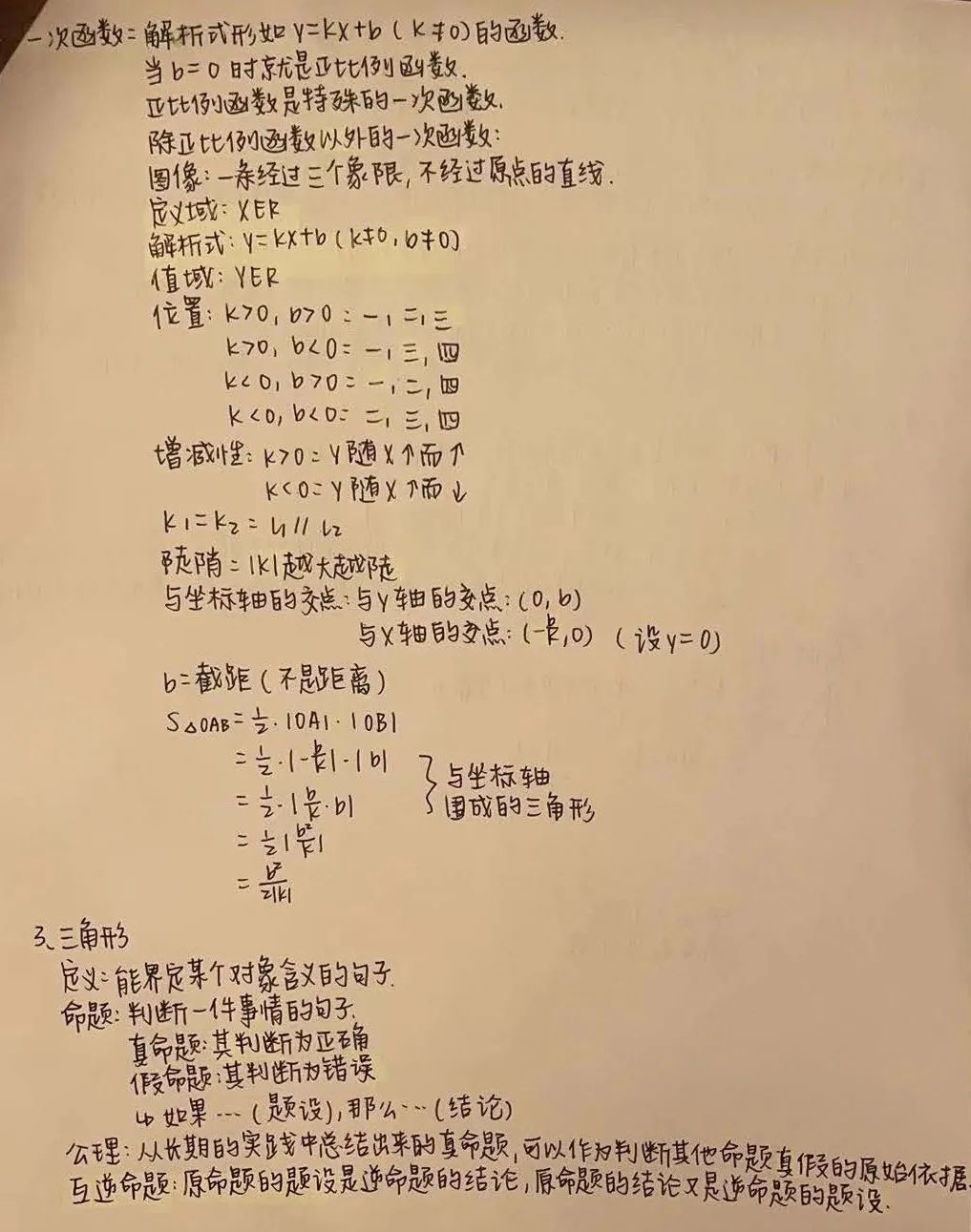
作为承上启下的关键学习阶段,初中既衔接了小学阶段的学习成果,亦将为高中学习奠定基础。就数学学科而言,进入中学后,学习内容拓宽、知识深化;从具体发展到抽象,从数字发展到符号,对学生的学习和思维能力也提出了更高的要求。在上海闵行区民办德闳学校初中数学课堂上,老师们除了传授数学知识,还会为学生提供更多平台,激励他们更加积极主动地探索数学领域,培养他们发现、分析、解决问题的能力,为未来的学习做好必要的准备。
1、循序渐进
母语打基础,为高中学习做铺垫
德闳的中学数学课堂,仍然采用全中文的教学模式,让学生在母语的环境打下坚实的数学基础,减轻高中阶段更为深奥的数学知识带来的挑战。
中学部数学教研组组长潘梦莹老师介绍道:
“数学学习的核心和优势在于培养学生的逻辑思维能力和思维深度,而这个过程极具挑战性。在熟悉的母语环境中,学生更易于深度理解和学习数理逻辑,从而培养数学学习能力。因此初中阶段的数学我们采用中文教学,旨在最大化培养学生的数学素养,为高中乃至未来学习更深层次的内容打下坚实的数学基础。”
六年级作为小初衔接的一年,学生数学学习的重点是巩固小学所学、强化数学理解,为后续的学习做好铺垫;七年级则通过几何、代数的学习,帮助学生达成从具象思考到抽象思维的提升;八九年级则增加函数、方程等更具挑战性的内容,为高中学习打下坚实基础。配合别具匠心的教学模式,德闳的数学既循序渐进,又趣味满满,激发了学生的学习兴趣,提升了学习的自趋力。(《玩转数学 | 天才们靠的不是天赋,而是方法》)
整个中学数学的课程目标立足于培养学生的核心素养,旨在教会学生:
用数学的眼光来观察现实世界;
用数学的思维来思考现实世界;
用数学的语言来表达现实世界。
2、因材施教
个性化教学,满足不同学生的学习需求
根据不同学生的数学学习需求,老师会在达成统一的课程标准的基础上,对教学的广度与深度进行相应的调整;学生也按需分组学习,获得个性化学习与支持,从而确保学习效率,达成有针对性的学习目标。针对资优学生的拓展学习需求,老师也会给予相应支持和帮助,包括课后辅导。
除了日常的教学课堂,德闳还提供启迪课程,丰富学生的数学知识面。对于数学和相关学科有更多探索欲的学生,在这里都可以得到满足。
3、项目学习
综合多学科,多角度感受数学之美
在德闳,数学有两层含义:一是为了研究数学内在乐趣的学科,二是探索和理解我们生活世界的工具,两方面相互独立又紧密相连。老师在数学课上,注重的不仅仅是知识点的全讲全练,还包括在同一个学习主题下进行跨学科教学,融会贯通语言、数学、科学、人文社会各方面的相关知识。
在中学阶段的不同年级,老师都会在课后布置一些有趣的作业,例如数学小报、思维导图、课堂PPT等等,帮助学生进行知识整合。

同时,老师也十分注重数学知识和实际生活的结合,让学生从数学活动中体会数学来源于生活,又应用于生活。“丝巾设计”就是一次有趣的项目化学习体验,学生把生活中出现的数学知识通过绘画的形式表现出来,用艺术的语言讲述数学的故事。
4、活动助学
数学生动化,提高学习的兴趣和动力
六年级是进一步激发学生数学学习兴趣的关键学年。我们的课堂会有很多精心设计的教学活动,让学生在积极参与学习的过程中更愉悦与高效地达成学习效果。例如“找CP”游戏,在学习等值分数的时候,老师会给每位学生提供一张卡片,让他们去让找相同分数值的分数。
通过活动配合课堂知识,能够在实际情境中帮助学生发现和提出有意义的数学问题。在之前举办的公益义卖活动中,学生可以站在“买家”或者“卖家”的立场了解市场商品等价交换原则,通过数学的角度理解现实世界中的买卖行为,明白定价背后的原理;在记账、找零的过程中整合数学知识,体会数学对于日常生活的重要性。(《德闳年终盛会丨让公益爱心在艺术中绽放》)
到了高年级,当学生具备了一定的数学知识,老师还会支持他们多参加国际的数学竞赛活动,在竞技中锻炼和提高自己的数学水平。学生如果有疑问或挑战,还可以在相关的启迪课上找老师一起探讨。通过参加国际顶尖竞赛,学生将增加国际赛事经验、提升抗压能力、拓展数学知识、深化数学思维、展示中国数学教学的优势。(《AMC数学竞赛 | 恭喜中学部的孩子们又斩获多枚奖章!》)
今年AMC10低年级组优秀奖和AIME晋级的Richard L.同学,因为竞赛经历,对于数学也有了不一样的看法:
Richard L:
“推算的过程可以让你更好地理解和掌握知识点,让大脑变得更加灵敏。解决问题的过程中,需要沉下心来思考背后的逻辑,有时甚至需要摆脱惯性思维,学会尝试不同的角度看问题,找到最合适的方式。”
德闳初中阶段的数学课堂,通过对现实世界进行数学探究,逐步培养学生从数学角度观察世界的意识与习惯,发展他们的好奇心、想象力和创新意识,学会用数学的眼光来观察现实世界。
老师细致、耐心的讲解,再配合丰富的数学活动,能够高效地帮助学生理解数学概念和法则,探究自然现象或现实情境所蕴含的数学规律,逐步养成有条理的数学思维,懂得用数学的语言与他人交流。
Walking into Our Middle School Classrooms:
How to integrate core competencies into mathematics class to develop students' mathematic abilities
The middle school period, as a stage linking the previous education period and the next, not only reflects the learning results of students in elementary school stage, but also lays a foundation for them to be adapted to learning in their future study. In the period of middle school, the teaching content for students gets broadened and the knowledge depth increases. From concrete phenomena to abstract problems, and from numbers to abstract mathematical symbols, students have to gain higher abilities to learn mathematics well.
In addition to teaching mathematics, teachers will also provide more platforms to motivate students to explore the field of mathematics more proactively and develop their abilities to discover, analyze, solve problems, and make preparations for their future.
Progressive Learning
Laying foundations for students by teaching them in Chinese to make better preparations
At Dehong, teachers still adopt the Chinese-language teaching model in mathematics class, aiming to lay a solid mathematical foundation for students in a native language environment, and alleviate the challenges brought by more advanced mathematical knowledge.
Mia Pan, Head of Secondary Mathematics:
"The advantage of mathematics lies in developing students' logical thinking skills. A mother-tongue environment familiar to students is more conducive to developing their abilities. Therefore, we adopt Chinese teaching and develop the mathematical competencies of students and then they will have enough time to learn more from Grade 10."
The objective of secondary mathematics focuses on the development of core competencies of students and aims to teach students to:
Observe the real world from the perspective of mathematics;
Think deeply about the real world with mathematical thinking;
And express the real world using the mathematical language.
Teaching Students Based On Their Aptitude
Personalised teaching to meet the learning needs of different students
According to the different needs of students in learning mathematics, the teachers will adjust the depth and difficulty of teaching content to facilitate students to learn mathematics easier. In addition to daily courses in classroom, Dehong offers related Qidi courses to enrich students' mathematical knowledge, which can meet the needs of students who are more interested in exploring mathematics and related disciplines.
Project Learning
Helping students feel the aesthetic component of mathematics based on multiple disciplines from multiple perspectives
At Dehong, mathematics carries two meanings. On the one side, it aims to study the inherent pleasure of mathematics; on the other side, mathematics is deemed as a tool to explore and understand the world where we live. The two aspects are independent and closely linked to each other.
Our teachers will arrange some interesting after-class assignments for students, such as writing mathematical papers, preparing mind maps, and creating PPT for presentations in class to help students integrate their knowledge. At the same time, the teachers also attach great importance to the combination of mathematical knowledge and real life, so that the students can understand from the mathematical activities that mathematics comes from life and is applied in almost every aspect of life. For example, "Scarf Design" was an interesting project learning activity, during which the students applied their mathematical knowledge to life in the form of paintings and told mathematical stories in the language of art.
mathematical papers
Related Activities
Increase students’ interest and motivation in learning
In Grade 6, we aim to develop students' interest in mathematics. Therefore, there are many mathematical activities held during classes, so that students can actively participate in mathematics learning.
When students have certain knowledge of mathematics in higher grades, the teachers will support them to participate in worldwide mathematical competitions to improve their mathematics level.
Apart from enhancing and expanding students’ mathematical thinking and mathematical knowledge, we hope to increase their experience in international competitions by participating in such world’s top competitions. ("American Mathematics Competition (AMC) | Congratulations to our students who have won multiple medals!")
Due to experiences in the competition, Richard L, who achieved the score of 90 or above on AMC 10, says:
Richard L:
"Sometimes the process of calculating allows you to better understand and grasp the knowledge points, and makes your brain more sensitive. In the process of solving problems, you have to think about the logic behind. Sometimes you need to get out of conventional thinking and learn to look at the problem from different perspectives to find the best way to solve it."
At Dehong, the secondary mathematics class, based on mathematical exploration of the real world, gradually cultivates students' awareness and habits of observing the world from a mathematical perspective, and develops their curiosity, imagination and creativity, to help them learn to observe the real world from a mathematical perspective.
The teachers' detailed and patient instructions, together with the colorful mathematical activities, can effectively help students understand mathematical concepts, explore mathematical laws hidden in natural phenomena or real-world context, and gradually help them develop an organised mathematical thinking and know how to communicate with others in the mathematical language.